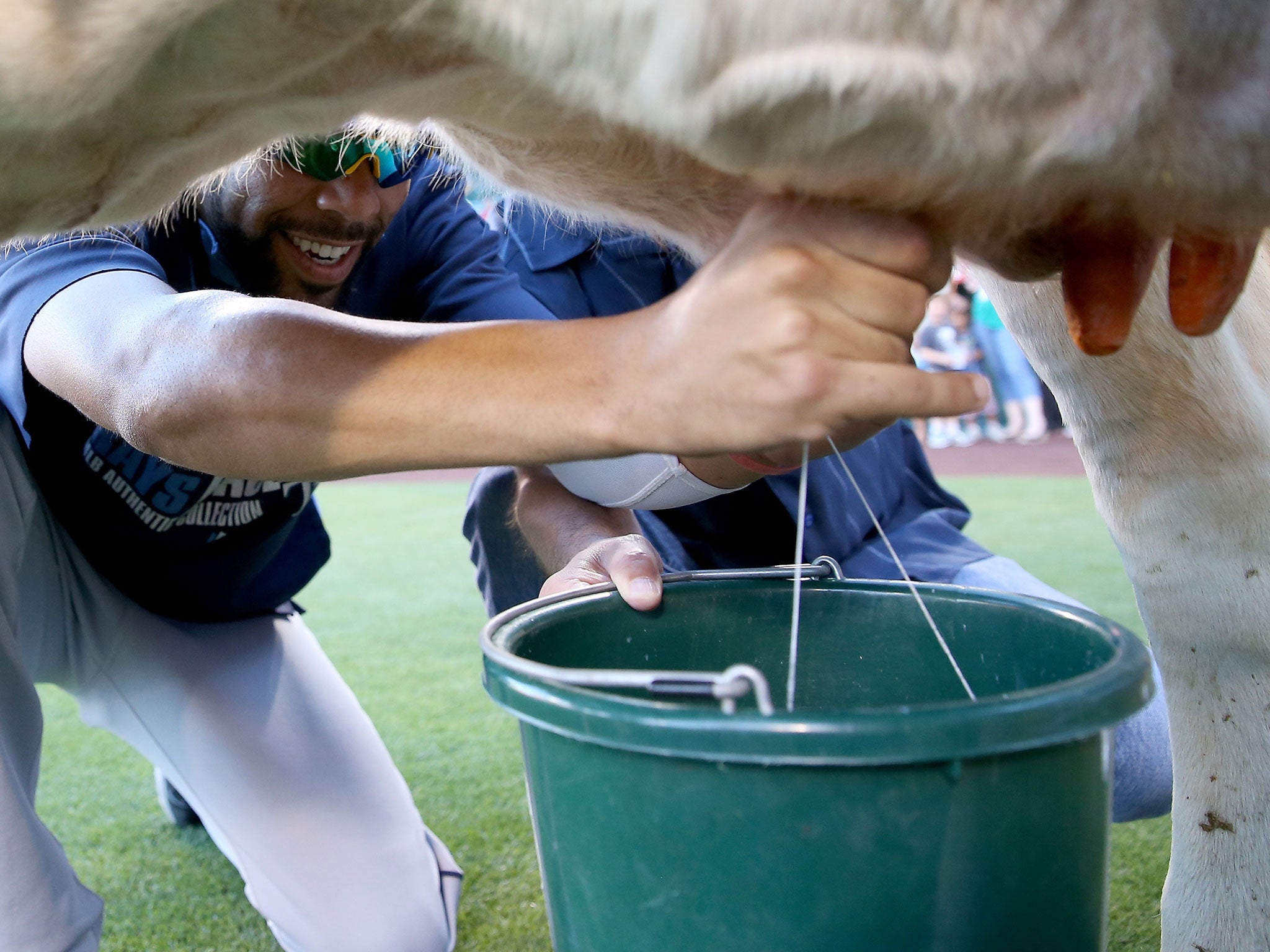Raw milk should be sold in vending machines, says food standards body
Currently it can only be bought directly from farmers

Shoppers will soon be able to buy raw, unpasteurised milk from vending machines in shops under controversial recommendations by the UK’s food safety regulator.
The Food Standards Agency (FSA) said consumers in England, Wales and Northern Ireland should be given “wider access” to raw drinking milk following a public consultation which found that most people supported a relaxation of the rules.
Currently, raw milk can only be bought directly from farmers. Sales are subject to strict controls because unpasteurised milk may contain harmful bacteria such as E. coli, listeria, salmonella and campylobacter. The changes to the rules will not apply in Scotland, where the sale of all raw milk is banned.
The proposals will be voted on by the FSA’s ten board members on Wednesday, and if they have no objections, discussions with producers and retailers will begin immediately. A FSA briefing paper prepared in advance of the board meeting said vending machines would be the best way of making raw milk available to the wider public, as stock and temperatures could be strictly controlled.
“Vending machines for raw drinking milk are used across many countries in the EU and producers and consumers have suggested that more flexible rules to allow vending machines placed in retail outlets would allow wider, but still controlled access to raw drinking milk,” the paper states.
Steve Wearne, director for food safety at the FSA, said current regulations had “worked well” to control the risks from raw milk. “We are not advising that these controls should be removed completely as they are necessary for continued consumer protection,” he added. “However, we believe there is the opportunity for us to make changes which balance modest liberalisation of sales with controls on production that ensure continued consumer protection.”
Producers of raw milk say it tastes better than the pasteurised variety, contains “good” bacteria to encourage a healthy digestive system and has more naturally occurring nutrients. Some also claim that it can be digested more easily by people with lactose intolerance, but a recent scientific study by Stanford University School of Medicine in the US found no discernable difference between the two types.
The FSA briefing document admits that “there is the potential for an increase in the public health risks associated with RDM [raw dairy milk],” stating that a rise in the number of people drinking it could lead to an increase in illnesses. But it says an “enhanced testing regime” could mitigate the risks and that bottles would have to carry warning labels to educate shoppers.
Dairy UK, the industry’s trade association, warned that selling raw milk more widely may cause “significant food safety issues” for British consumers. “We are disappointed by the FSA’s recommendation to consider wider access to unpasteurised milk in shops,” it said in a statement. “Milk pasteurisation provides the public with a microbiologically safe product as raw milk poses a number of health concerns.
“Statistics from Scotland show that incidence of food poisoning went down after raw drinking milk was banned. Should raw milk sales be permitted more broadly, we can only hope that this decision will not bring about significant food safety issues for British consumers. Therefore we strongly encourage the FSA board to turn down the current proposal and reiterate its support for pasteurisation of milk.”
The FSA stopped short of recommending that raw milk should be sold openly in supermarkets, stating that “full liberalisation” was “not appropriate” because there was not enough evidence to assess the possible health risks to consumers.
Join our commenting forum
Join thought-provoking conversations, follow other Independent readers and see their replies
Comments
Bookmark popover
Removed from bookmarks